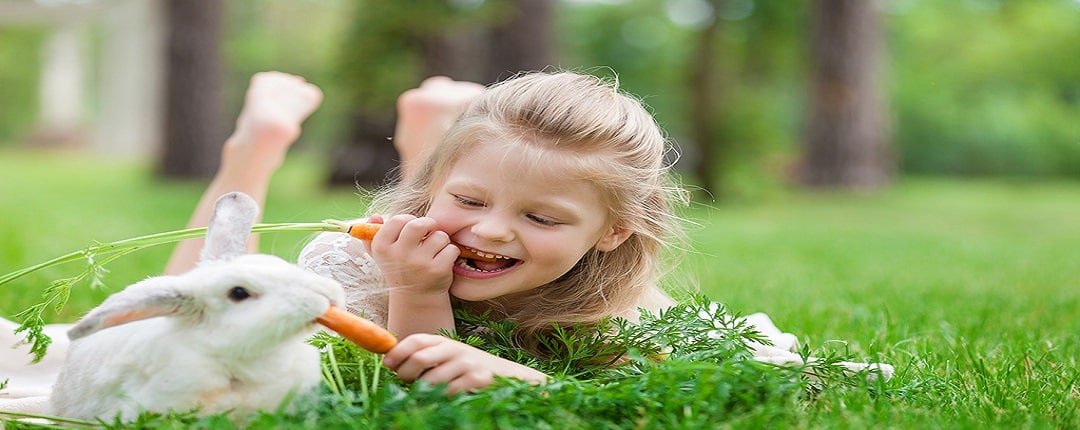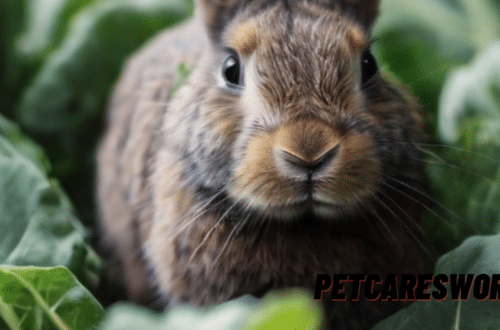Rabbits are hopping their way into hearts and homes worldwide. These fluffy bundles of joy bring endless entertainment and cuddles, but before you welcome a bunny into your life, it’s crucial to understand their unique needs. This comprehensive guide dives deep into rabbit care, equipping you with the knowledge to keep your furry friend happy and healthy.
Housing Your Hoppy Homebody
Rabbits aren’t cage creatures! They require spacious enclosures to exercise, play, and express natural behaviors. Aim for a minimum of 4 square feet per rabbit, ideally with an attached exercise pen for daily zoomies. Cages should be sturdy, escape-proof, and well-ventilated, with solid floors and plenty of room to stand upright.
Fueling the Floof Machine
Diet is key to a rabbit’s well-being. Unlimited access to high-quality hay is essential, providing essential fiber for digestion and dental health. Supplement with fresh, leafy vegetables like romaine lettuce and kale, and a limited amount of rabbit pellets. Avoid sugary treats and opt for fresh herbs and enrichment toys for nibbling fun.
Read More About Horse Care: Your Comprehensive Guide to Happy and Healthy Horses
Keeping Clean: Litter Box Basics
Rabbits are surprisingly tidy creatures, mastering litter box training with ease. Choose a spacious box with odor-controlling litter, placed in a quiet corner. Clean the box daily and completely replace the litter every week to maintain hygiene and prevent unpleasant smells.
Playtime for Fluffy Feats of Fitness
Exercise is vital for a rabbit’s physical and mental health. Provide ample playtime outside their enclosure, bunny-proofing your home to prevent chewing mishaps. Interactive toys like tunnels, cardboard boxes, and foraging puzzles stimulate their natural instincts and keep them entertained.

Bonding with Your Bunny
Rabbits are social creatures who crave interaction. Spend quality time with your furry friend, offering gentle petting, grooming sessions, and playtime. Learn their body language to understand their moods and build a strong, trusting bond.
Health & Happiness: Keeping Your Bunny Thriving
Regular veterinary checkups are crucial for preventive care. Vaccinations protect against diseases, and ear cleaning and nail trimming ensure good hygiene. Observe your rabbit’s behavior and appetite for any changes, seeking prompt veterinary attention if needed.
Beyond the Basics: Tips for Thriving Bunnies
- Companionship: Consider adopting a bonded pair for double the bunny love and reduced loneliness.
- Grooming: Brush regularly to prevent matting, especially for long-haired breeds.
- Temperature: Avoid extremes, keeping your bunny cool in summer and warm in winter.
- Socialization: Introduce your rabbit to children and other pets slowly and supervised.
Read More About Fish Care: Your Complete Guide to Happy and Healthy Fish
Expanding Your Bunny Burrow: Enrichment Ideas for Your Hoppy Companion
Beyond the basics of housing, feeding, and health, enriching your rabbit’s life is crucial for their mental and physical stimulation. Here are some fun ideas to keep your bunny’s mind and body hopping:
Sensory Delights:
- Scentastic Adventures: Hide treats or herbs in different areas of the enclosure or exercise pen, encouraging your bunny to use their natural sniffing skills.
- Digging Dreams: Create a designated digging area filled with shredded paper or soil (supervised, of course!). This satisfies their natural digging instincts and provides a fun activity.
- Tunneling Thrills: Cardboard boxes, tunnels, and paper bags become exciting hideouts and exploration paths for your bunny.
- Soundscapes for Siesta: Play calming music or nature sounds during nap time to create a relaxing atmosphere.
Brain Games for Bunny Brainiacs:
- Food Puzzles: Feed your bunny their pellets or treats through interactive puzzles that require them to use their paws and problem-solving skills.
- Obstacle Courses: Create a simple obstacle course with cardboard boxes, tunnels, and jumps to challenge your bunny’s agility and coordination.
- Target Training: Teach your bunny fun tricks like hopping through a hoop or targeting a specific spot for a treat. This strengthens your bond and keeps their minds sharp.
Read more about: downloadhub4u.in

Bunny-Approved Playthings:
- Wicker Wonders: Wicker balls and baskets provide safe chewing options and encourage playful tossing and batting.
- Paper Paradise: Crumpled paper and cardboard boxes become bunny bowling pins and irresistible digging treasures.
- Foraging Fun: Hide treats and toys in different areas of the enclosure, encouraging your bunny to sniff and explore.
- Mirror Moments: Hang a safe, shatter-proof mirror in the enclosure for entertainment and social interaction.
Conclusion:
Bringing home a rabbit is a rewarding journey filled with love, laughter, and endless entertainment. By understanding their needs and providing them with the right care, you can create a happy and fulfilling life for your furry friend. Remember, rabbits are individuals with unique personalities. Be patient, learn their quirks, and shower them with love; they’ll hop their way right into your heart!
Read More About Feathered Friends: Your Guide to Bird Care for Happy and Healthy Flockmates
5 FAQs About Rabbit Care:
1. Do rabbits need to be caged?
While rabbits shouldn’t be confined to cages all day, they do need a spacious enclosure (minimum 4 square feet per rabbit) as a safe haven and sleep area. This enclosure should be well-ventilated, escape-proof, and have solid floors for digging (with an attached exercise pen for daily zoomies being ideal).
2. What should I feed my rabbit?
A healthy rabbit diet revolves around unlimited access to high-quality hay (the main source of fiber for digestion and dental health). Supplement this with fresh, leafy vegetables like romaine and kale, and a limited amount of rabbit pellets. Avoid sugary treats and opt for fresh herbs and enrichment toys for occasional nibbling.
3. How do I litter train my rabbit?
Rabbits are surprisingly adept at litter box training! Choose a spacious box with odor-controlling litter and place it in a quiet corner. Clean the box daily and replace the litter weekly. Most rabbits pick up on using the box within a few days, but be patient and offer positive reinforcement for successful trips.
4. How much exercise does my rabbit need?
Exercise is crucial for a rabbit’s physical and mental well-being. Aim for at least 2-4 hours of daily playtime outside their enclosure. Bunny-proof your home and provide a safe space for them to run, jump, and explore. Interactive toys, tunnels, and cardboard boxes can add fun and variety to their exercise routine.
5. Are rabbits social animals?
Yes, rabbits are social creatures who crave interaction and companionship. Consider adopting a bonded pair, especially if you’re away from home for long periods. Spend quality time with your rabbit, offer gentle petting and grooming, and engage in playful interactions. Building a strong bond with your bunny will make them feel loved and secure.
Bonus Tip: Regular veterinary checkups are essential for preventive care and early detection of any health issues. Don’t hesitate to consult your vet with any questions or concerns about your rabbit’s health.
Read more about: web3rdgen






